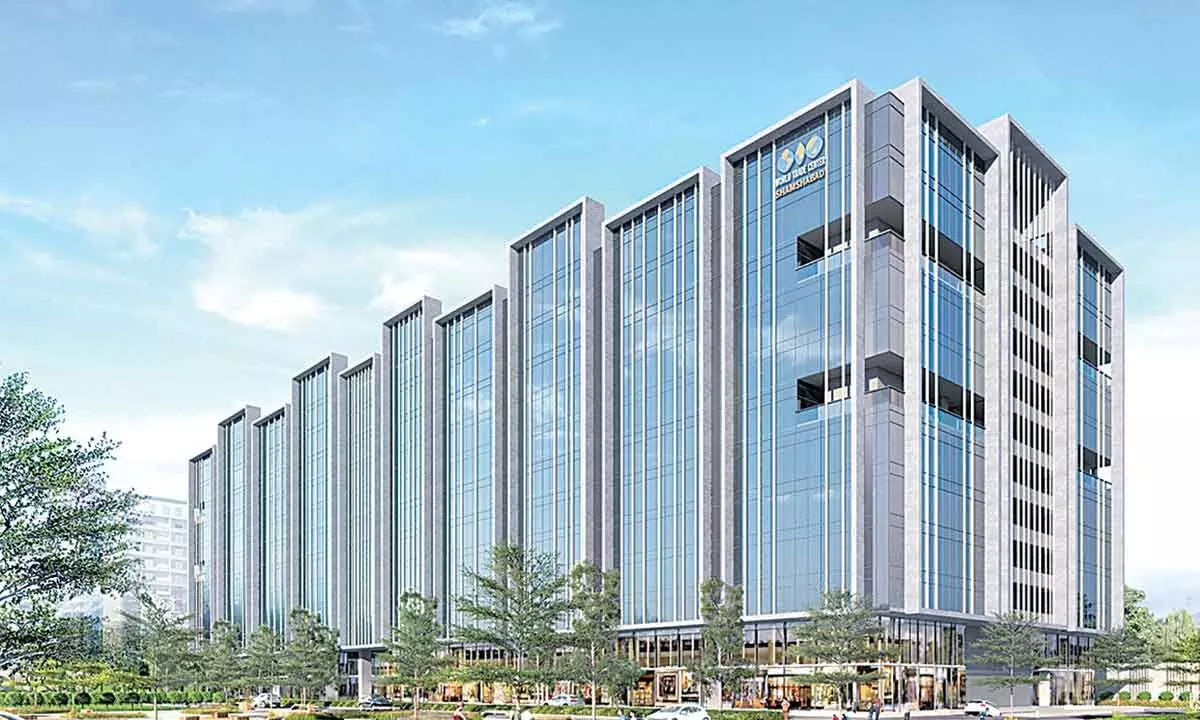Fractional ownership turns attractive for all investors
People are happy to invest in the fractional ownership platforms that provide both monthly returns and long-term capital appreciation
image for illustrative purpose

Today, the middle-class home-buyers may not get any residential property, not even a small flat, at a budget of Rs 25-30 lakh within the city limits of Hyderabad or other metropolis. As an alternative, they prefer investing in fractional ownership platforms and using the returns for their rents and savings
Hyderabad: Not only the rich and high-networth individuals (HNIs), the middle-class people are also attracted towards fractional ownership of real estate assets across India due to the Sebi regulation, low-ticket size, timely returns and higher capital appreciation. They are investing in various asset classes including commercial, office space, co-living spaces, warehouses, hospitality projects and residential ventures.
The Sebi (Securities and Exchange Board of India) Board has recently revamped the REIT (Real Estate Investment Trusts) Regulations 2014 to create a new regulatory framework for small and medium REITs to protect the investor interests. As per these guidelines, small and medium REITs can raise funds starting from Rs 50 crore from a minimum 200 investors through special purpose vehicle (SPV).
G Hari Babu, National President of National Real Estate Development Council (NAREDCO), applauds this progressive stride, ensuring investor protection and disclosure practices. He says, “The Sebi's decision to lower the minimum asset value to Rs 50 crore offers enticing entry points for investors, aligning with the industry's evolution. This is a transformative milestone for fractional ownership of real estate assets.”
“The formalisation of fractional ownership is crucial for fostering investor confidence, benefiting not only commercial but also affordable housing. The regulatory framework is anticipated to drive growth in this innovative property ownership form, reflecting trust in the evolving investment landscape. This marks a significant step towards a more dynamic and inclusive real estate environment,” he adds.
With these guidelines, the fractional ownership of real estate has turned a lucrative market for more investors, including the middle-class. According to a study by a tech-enabled real asset management company TruBoard Partners, many private companies have set up fractional ownership platforms that allow investors to own a fraction of real estate assets.
Sangram Baviskar, MD, Real Estate Practice at TruBoard Partners, said: “The total asset under management (AUM) by all fractional ownership platforms in India jumped from Rs 1,500 crore in 2019 to Rs 4,000 crore in 2023. The AUM of the fractional ownership market is likely to grow at a compounded annual growth rate (CAGR) of 25-30 per cent over the next 4-5 years.”
Kapil Properties, one of the renowned companies offering fractional ownership of real estate assets, has completed commercial projects such as Kapil Towers and Kapil Kavuri Hub in Hyderabad, and Kapil Kakatiya in Hanamkonda. It is now constructing Kapil Business Park near Hyderabad international airport in a tie-up with World Trade Center (WTC) Shamshabad.
Kapil Properties is giving the handsome returns of 9-20 per cent per annum on a minimum investment of Rs 36 lakh. The investors are very happy to invest in the RERA-approved world-class project that provides assured monthly rental income from day-one, rent escalation of 5 per cent every five years and long-term capital appreciation.
Janapriya Upscale, a part of 39-year-old Janapriya Group, has recently announced Janapriya Fractional Land Ownership (FLO) to develop high-end residential projects by raising funds from its existing and new customers. It is offering projected 24 per cent rate of returns on a minimum investment of Rs 28 lakh for a period of just three years.
K Kranti Kiran Reddy, Managing Director of Janapriya Upscale, said: “Janapriya FLO gives an opportunity to buy a share of the land to the investors, who will become a part of the company’s SPV. We will develop the land by investing their funds and sell the flats in the residential project through a third-party consultancy, so that there shall not be any conflict between our sales team and theirs.”
“Most of our old customers are investing in Janapriya FLO instead of buying another home. They feel it as a safe investment as there will be depreciation and maintenance costs involved while owning a house. Also, the NRI (non-resident Indians) customers are showing interest in this project. They have better knowledge about this concept and our company reputation,” he informed.
Owning a piece of the developable land is an affordable investment option in the real estate sector. Today, the middle-class home-buyers may not get any residential property, not even a small flat, at a budget of Rs 25-30 lakh within the city limits of Hyderabad or other metropolis. As an alternative, they prefer investing in fractional ownership platforms and using the returns for their rents and savings.

